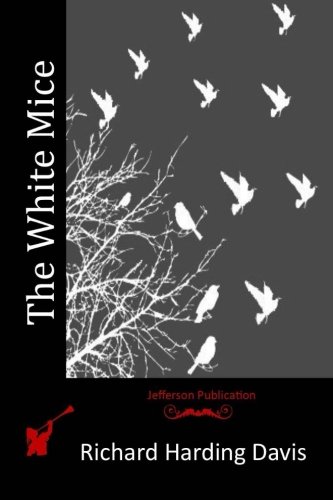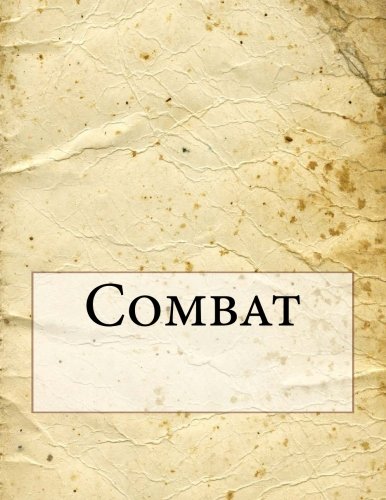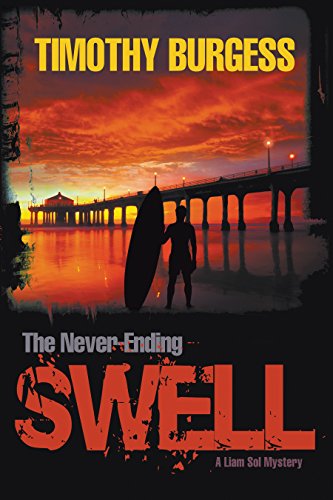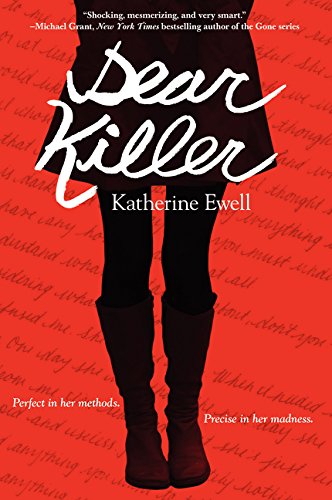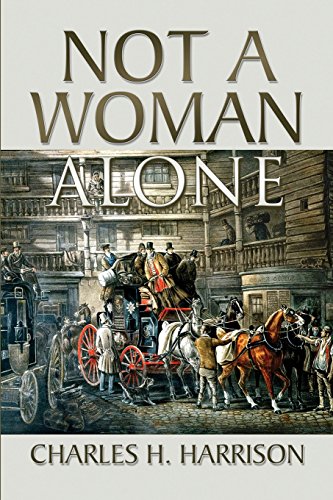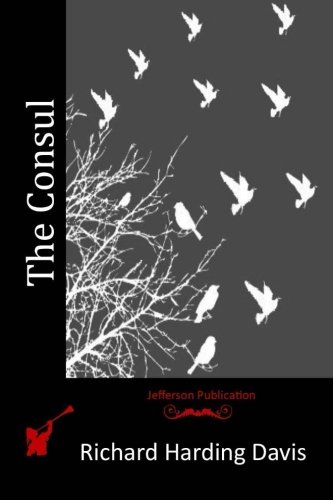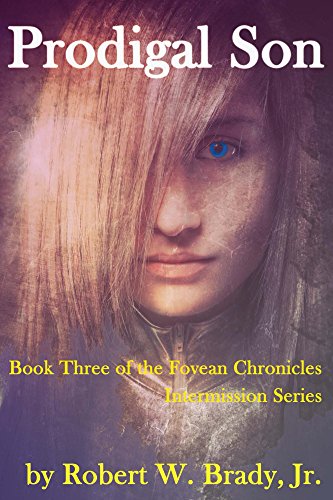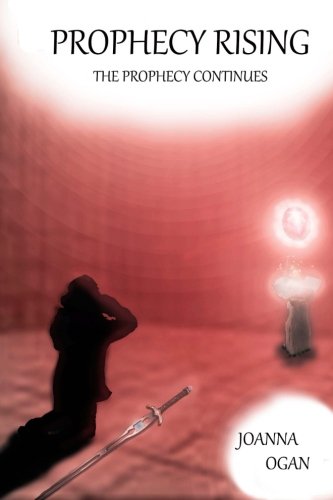The Clansman An Historical Romance of the Ku Klux Klan, by Thomas Dixon
The here and now book The Clansman An Historical Romance Of The Ku Klux Klan, By Thomas Dixon we offer below is not sort of typical book. You know, reviewing currently does not indicate to manage the printed book The Clansman An Historical Romance Of The Ku Klux Klan, By Thomas Dixon in your hand. You can obtain the soft documents of The Clansman An Historical Romance Of The Ku Klux Klan, By Thomas Dixon in your device. Well, we indicate that the book that we proffer is the soft documents of guide The Clansman An Historical Romance Of The Ku Klux Klan, By Thomas Dixon The content and all things are same. The difference is only the kinds of guide The Clansman An Historical Romance Of The Ku Klux Klan, By Thomas Dixon, whereas, this condition will precisely be profitable.
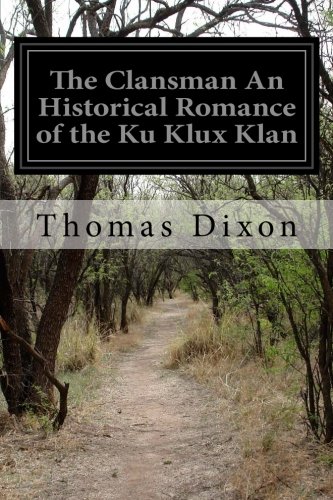
The Clansman An Historical Romance of the Ku Klux Klan, by Thomas Dixon

PDF Ebook Online The Clansman An Historical Romance of the Ku Klux Klan, by Thomas Dixon
This collection of literature attempts to compile many classics that have stood the test of time and offer them at a reduced, affordable price in an attractive volume so that everyone can enjoy them.
The Clansman An Historical Romance of the Ku Klux Klan, by Thomas Dixon - Amazon Sales Rank: #1445089 in Books
- Published on: 2015-10-31
- Original language: English
- Number of items: 1
- Dimensions: 9.00" h x .36" w x 6.00" l, .48 pounds
- Binding: Paperback
- 158 pages
The Clansman An Historical Romance of the Ku Klux Klan, by Thomas Dixon About the Author Thomas F. Dixon, Jr. (1864–1946) was a Southern Baptist minister, playwright, lecturer, North Carolina state legislator, lawyer, and author, best known for his book The Clansman — which was to become the inspiration for D. W. Griffith's film, The Birth of a Nation (1915). He studied at Shelby Academy, where he earned a diploma, and at Wake Forest where he studied history and political science, earning his master’s degree in 1883. The next year he was awarded a scholarship to attend the Johns Hopkins University political science program. After graduation, he ran for the local seat in the North Carolina General Assembly. Despite being only twenty years of age and not even old enough to vote for himself, he won the election by a two-to-one margin. He retired from politics in 1886 after only one term in the legislature, saying that he was disgusted by the corruption and the back-door deals of the lawmakers. He then practiced law for a short while, leaving that profession to become a Baptist minister. In 1895, Dixon resigned from the Baptist ministry, and started preaching at a nondenominational church, leaving the ministry completely in 1899 when he began to lecture full-time.

Where to Download The Clansman An Historical Romance of the Ku Klux Klan, by Thomas Dixon
Most helpful customer reviews
67 of 83 people found the following review helpful. A Fascinating, Important Reading of History. By K. L. Rouse This novel is important reading--not as a lesson in historical fact, but rather to understand and envision the power (and inherent violence) of a white supremacist worldview in American history. Dixon is careful to detail many facts about historical figures, particularly President Lincoln and Republican Congressman Thad Stevens, including many actual quotes and near-quotes of these men in their dialogue; he is meticulous and masterful with so many aspects of this novel. The Clansman (and Dixon's later novel, The Traitor) are virtually the only works of popular American literature to render a sympathetic, insider view of the Ku Klux Klan. Dixon includes so many rich and rare details of history that it's no wonder readers have been persuaded (and still are, apparently) that this is a complete and accurate picture of what is perhaps the single most tumultuous period of American history.But it would be a gross error to assume that Dixon's portrayal of race relations is at all accurate. Dixon makes it appear that southern whites were made vulnerable (by the federal government, by military rule, and by the ravages of war) to the attacks of an animalistic race of out-of-control freedmen, but nothing can be further than the truth. White southerners inflicted violence upon blacks to maintain their brutal control over social relations and labor--and then generated a powerful, lasting mythology of black criminality and brutality to perpetuate this violence and justify it.Any reading of first-hand accounts of black freedmen during Reconstruction is alternately chilling and saddening--particularly the Congressional testimonies of freedmen about the race riots of Memphis and New Orleans in 1866. Throughout the South freedmen were coerced into slavery-like labor; they were prevented from migrating elsewhere by vigilante groups (in many cases, the KKK); often the Freedmen's Bureau and military officials sided with the unjust practices of white planters; and Republicans in Congress seemed to manipulate freedmen's vote only to benefit themselves and turn a blind eye to the interests of freedmen. White men and women in the South had it hard after the Civil War--but black men and women, by and large, had it far harder.Any scholarly history of Reconstruction written after 1950 (after Americans got over a long period of racist and xenophobic hysteria) will elaborate on the above details... particularly the work of Eric Foner, or the excellent account of The Trouble They Seen. Pick up one of these books as a reading companion to The Clansman!Dixon may not accurately represent the FACTS of history, but he does accurately represent the EMOTIONS of history--the many emotions of southern whites about a newly freed population of black men and women, particularly their fears and their psychological/sociological need to keep ex-slaves in a subordinate social position--to separate black and white in a society that coexisted a little too close for comfort.It's a fascinating book. I recommend it to every American who seeks to make sense of our complex, tragic, and gradually evolving history of race relations.
10 of 10 people found the following review helpful. See How Far We Have Come By Richard Ward 'The Clansman' by Thomas Dixon is not an easy read nor is it for everyone. However, if you are interested in seeing a view of the south from the perspective of someone looking at it in the early years of the 20th century here is an opportunity to do so. Most people have come to appreciate the diversity between races of people and have had glimpses of the struggle that brought about the changes in civil rights during the 1960's and 1970's through history books and films but we have come to see it looking back from a distance down the path rather than looking ahead to an uncertain future. 'The Clansman' will give the reader a taste for the attitudes that brought about the Ku Klux Klan and help provide an insight into thinking of the people that were experiencing a sea change to what they perceived as the norm and how they were fighting to put the toothpaste back into the tube. If you are a fan of history and enjoy looking at situations from different points of view, you will enjoy 'The Clansman' even though it is difficult to come to grips with the philosophy of the author.
10 of 12 people found the following review helpful. Writing history with frightening bias By Aletheia Knights Although it was a bestseller in its day, it's likely "The Clansman" would have been long forgotten if it hadn't served as the basis for D.W. Griffith's classic motion picture "The Birth of a Nation." A genius at the forefront of the emerging art of filmmaking, Griffith employed a number of innovative narrative and cinematographic techniques in his adaptation of Thomas Dixon, Jr.'s novel. Over three hours in length at a time when most films were under an hour, with a ticket price (two dollars) equivalent to fifty dollars in today's currency, it was a melodramatic spectacle the likes of which had never before been seen on the silver screen. Today, however, it is remembered (except by cinephiles) not as the original blockbuster, but as crude and disgusting racist propaganda. This stirring film, which glamorized the role of the Ku Klux Klan in the Reconstruction South, revitalized interest in an organization that had died out decades earlier. A decade after the film was released, two decades after the novel was published, membership in the Klan was at its height, with nearly ten times as many men as the most generous estimates of the Reconstruction Era Klan. The re-formed Klan was created less in the image of the actual historic Klan than in that of the romanticized version Dixon had depicted in his novel.The novel opens in April 1865, with the nation's capital abuzz with the happy news that General Lee has surrendered, and the Civil War is over. Mrs. Cameron has come up from South Carolina with her daughter Margaret in search of her wounded son. Ben's going to survive, a sympathetic nurse informs her, but that doesn't mean he's out of danger: he's been sentenced to hanging on trumped-up charges. (Why no less a personage than Secretary of War Edwin M. Stanton has a special hate-on for this nineteen-year-old kid is never explained. It's a melodrama, okay? And the bad guys are like, you know, BAD.) Fortunately, the nurse, Elsie Stoneman, is a congressman's daughter, and personally acquainted with Abraham Lincoln. Lincoln's priority, now that he's succeeded in preserving the Union, is restoring its unity, and he listens with compassion to Mrs. Cameron's pleas, then writes Ben's pardon himself. It's the beginning of a friendship as powerful as any ties of blood between the Cameron and Stoneman families, or at least between the Camerons and Elsie and her brother Phil. The Hon. Austin Stoneman is in no mood to get friendly with any defeated Rebs; unlike Lincoln, Stoneman sees the South as conquered territory and wants to see it treated as such, with the property of the former rebels seized and divided up among their former slaves (with a nice cut for himself, of course). Fortunately, Lincoln isn't about to let that happen, so there's no reason Margaret can't set her cares aside for just one night, and go with her new friends to see a play at Ford's Theatre - right?Lincoln's successor, Andrew Johnson, resists Stoneman's Radical Republican agenda, so Stoneman arranges for his impeachment - but a single vote keeps him in office. The powerful Congressman isn't ready to quit, but his health is failing, and his doctor informs him his only hope is to relocate to the warmer climate of the South. The Camerons are delighted to welcome the Stonemans to Piedmont, South Carolina, where Phil courts Margaret, Elsie is courted by Ben, and their father shuts himself in the house, refusing to be seduced by the beauty of the South or the charm, hospitality, and nobility of its people. His plans for a punishing Reconstruction have started to bear fruit, and what was once a proud, prosperous land is now overrun with greedy carpetbaggers and filthy, illiterate, lustful freedmen. Can the negro menace be contained? Can the glory and honor of the South be restored? Can Ben and Elsie, Phil and Margaret, traverse the Mason-Dixon Line of the heart? Will Stoneman ever admit the greed, shame, and hatred that lie underneath his ridiculous talk about negroes and white men being *equal*? Ah, the suspense!What is "The Clansman," really? Setting aside for the moment all questions of historical accuracy and offensive content, I can answer that question in three words: a mediocre book. It's cheaply entertaining, with all the elements you expect of a romantic melodrama: stalwart heroes, imperiled damsels, dastardly villains, many impassioned speeches of love and hate, daring plots that go wrong, even more daring plots that succeed, a life-or-death race against the clock, and a happy ending. It's hardly well-written; Dixon occasionally graces his pages with a neat (if frequently sentimental) turn of phrase, and he's capable of serviceable prose, but all too often the story plods along through a thick morass of exaggeratedly cloying overstatement. (One doesn't know whether to laugh or to cringe at such a gem of terrible writing as "The smile that had only haunted his sad face during four years of struggle, defeat, and uncertainty had now burst into joy that made his powerful head radiate light.") With the exception of the tenderhearted curmudgeon Austin Stoneman, the characters have all the depth of cardboard cutouts; even the ones I found myself liking (more than not, at least) never particularly *interested* me. Dixon's greatest strength is his ability to manipulate the reader's feelings - not by the creation of genuine emotion, but through the sentimental trickery of melodrama. Unfortunately, far too few readers can tell the difference.Such manipulation may be harmless enough; most of us enjoy a little junk food in our entertainment diet from time to time. In "The Clansman," however, Dixon offers us a morsel of tasty poison, turning his talents to the promotion of an ideology of white supremacy. Although it is the Radical Republicans who are the real villain in this story, not the freedmen, this in itself is problematic under the surface; except for a few negroes (as Dixon calls them) who act with deliberate malice, the problem with the freedmen isn't that they're evil people but that they're too dirty, animalistic, and stupid to live among "civilized" people on a basis of equality. It's not their fault, Dixon implies; they're just doing what comes naturally, but those "Aryans" who encourage them really ought to know better. The only black characters Dixon allows us to like are those who know their place under the white man's dominion. (Not that he really expects us to care about them either. In one of the most disturbing passages of the novel, Ben is arrested on false charges, and an elderly black man is tortured to get him to testify to Ben's guilt. Loyal to the Cameron family, he's tortured for nearly a week without breaking. When Phil witnesses how they're treating this courageous man, he makes up his mind "to spare no means, fair or foul" to rescue *Ben*. He helps Ben escape, and the two of them go merrily on home. Dixon never bothers to tell us what happened to the loyal old man.) While I was reading the book, I remarked to my husband that I could always tell immediately upon the introduction of a new negro character whether s/he would be one of the villains of the story, based on whether or not Dixon supplied a physical description. Here's a typical villain: "He had the short, heavy-set neck of the lower order of animals. His skin was coal black, his lips so thick they curled both ways up and down. . . . His nose was flat, and its enormous nostrils seemed in perpetual dilation. The sinister bead eyes . . . were set wide apart and gleamed apelike under his scant brows." Mulatto characters might have pleasant facial features, but inevitably Dixon informs us that they have the eyes of savage jungle beasts. Apparently he couldn't think of any way to describe morphological traits suggestive of African ancestry without exaggerating, expressing distaste, or using the word "ape," so he doesn't bother to describe the more benign black characters at all. Southern whites, on the other hand, are, to a one, the epitome of charm and grace. White women, in particular, ooze so much sweetness and light you could gag on it. Every few chapters, one of the Stonemans (usually Austin, whose children, especially Phil, are quick to embrace their Aryan superiority once they move to Piedmont) voices some silly Yankee notion, and then Dixon gets to use one of his characters (usually Ben Cameron or his father, but in one case Abraham Lincoln) as a mouthpiece for his views on Northern hypocrisy, Southern breeding, and, of course, white supremacy.The first half of the novel, set in Washington, D.C., is, for the most part, historically accurate - certainly well within the limits of artistic license. Dixon throws in plenty of little details that bring the era, and sometimes specific historical events, to life for the reader. A number of real people appear in these pages, and allowing for a measure of bias on Dixon's part, they're rather truthfully rendered, with actual quotes from them worked into the fictional dialogue. Dixon's admiration of Lincoln verges on hagiography (it was Lincoln he was describing with the awful sentence about the glowing head), but his portrait of a sensitive, principled man personally devastated by his nation's wounds rings true. Perhaps most interesting is the Austin Stoneman character, an obvious fictional stand-in for the real Radical Republican leader Thaddeus Stevens. Although many of the details of Stoneman's life are simply Dixon's invention (Stevens never married or had children, and he never lived in South Carolina), many other details are clearly borrowed from Stevens's life, and his personality is clearly modeled on Stevens, at least as he was seen by those who opposed him. In the second half of the novel, unfortunately, historical accuracy largely falls by the wayside. It's true that life was hard for white Southerners after the Civil War, but the freedmen, rather than lording it over their former masters at every opportunity, faced even greater challenges. It's true that some were used as political pawns by Northern carpetbaggers, but most simply found themselves trying to get by as best they could, cast out of the only homes they had ever known into a freedom for which nothing in their lives so far had prepared them. Considering the disadvantages they faced, many actually did quite well for themselves. Some turned to crime, of course, as displaced people in times of chaotic upheaval often do. A pair of delicate southern belles living in an isolated cottage would probably have more to fear from roving bands of Confederate soldiers with no home to return to than from mean-spirited freedmen on a rampage for no special reason - but that's not the story Dixon chooses to tell. As for the KKK of the Reconstruction Era, it was hardly the meticulously organized society of gentlemen Dixon portrays. Attempts at organization above the local or regional level never quite cohered, and however "noble" its motives may have been to start with, the KKK was often associated with acts of plain and simple criminality, motivated by malice and greed: adding to the chaos rather than restoring any sort of order. As for the infamous burning cross, the man who "re-founded" the KKK in 1915 copied it from what he saw in "The Birth of a Nation." Griffith took the idea straight from the pages of "The Clansman," and Dixon adapted it from an old Scottish tradition. There's no evidence that any KKK member of the Reconstruction Era ever burned a cross.What is accurate in "The Clansman" - and the reason why I am giving an offensive novel of no literary merit five stars, why I think it needs to be read and studied today - is the portrayal of Reconstruction as it *felt* to many white Southerners. The chaos, the fear, the sense of something grand having been grievously wounded - these are real. Dixon was a child in the Reconstruction South. His father and uncle wore the white hood. "The Klan are our people," young Thomas's mother told him when the Klan publicly killed a black man who had allegedly raped the daughter of a Confederate widow. "They're guarding us from harm." That was one of his earliest memories. What we recognize to be a foul, accursed lie was his *emotional* truth, the emotional truth for so many who, clinging to the image of a faded glory, could only hate and fear those they believed, however wrongly, to have taken it from them. How much of the racism that persists in this country today owes itself to those sad, defeated people who hated because they needed something to believe in, because they were afraid? We can only speculate how history would have been different if Lincoln had been able to carry out Reconstruction on his own benevolent terms. However, I believe understanding the ideas - and exploring the underlying premises - Dixon sets forth in this novel can only help us understand better where we have been, evaluate where we are now, and chart our course for where we want to be: to, as Lincoln said in his Second Inaugural Address (and repeated a month later in a private conversation with Austin Stoneman), "with malice toward none, with charity for all . . . bind up the Nation's wounds."
See all 45 customer reviews...
The Clansman An Historical Romance of the Ku Klux Klan, by Thomas Dixon
The Clansman An Historical Romance of the Ku Klux Klan, by Thomas Dixon PDF
The Clansman An Historical Romance of the Ku Klux Klan, by Thomas Dixon iBooks
The Clansman An Historical Romance of the Ku Klux Klan, by Thomas Dixon ePub
The Clansman An Historical Romance of the Ku Klux Klan, by Thomas Dixon rtf
The Clansman An Historical Romance of the Ku Klux Klan, by Thomas Dixon AZW
The Clansman An Historical Romance of the Ku Klux Klan, by Thomas Dixon Kindle
The Clansman An Historical Romance of the Ku Klux Klan, by Thomas Dixon
The Clansman An Historical Romance of the Ku Klux Klan, by Thomas Dixon
The Clansman An Historical Romance of the Ku Klux Klan, by Thomas Dixon
The Clansman An Historical Romance of the Ku Klux Klan, by Thomas Dixon



